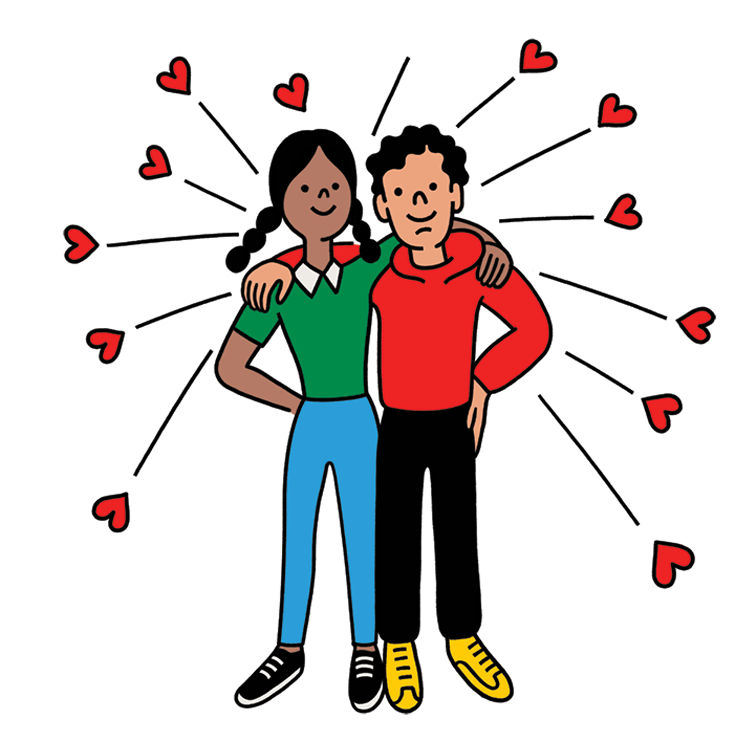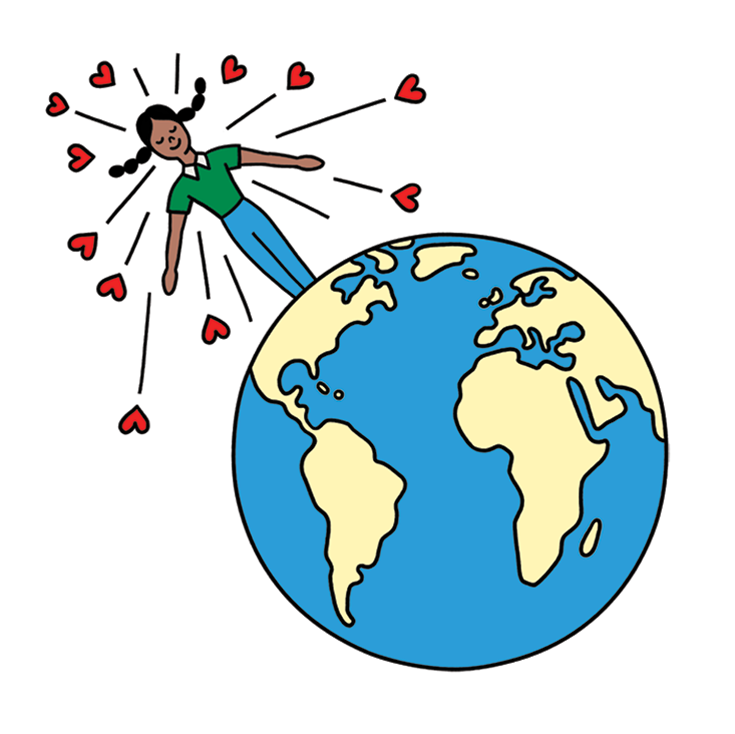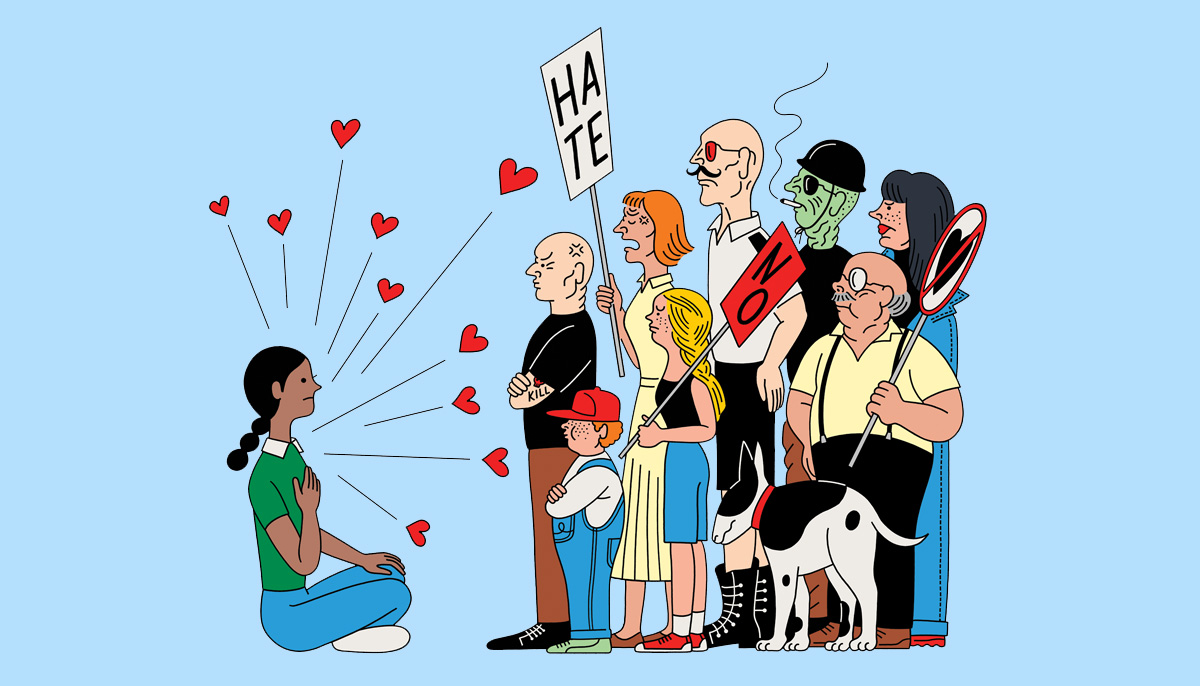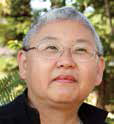Metta meditation is not a magical spell you can cast on the population of the U.S. in order to produce a state of utopian bliss. It is not a cure-all for oppression and the unequal distribution of power and privilege.
Metta meditation doesn’t work like that. It’s about being determined, courageous, and patient in purifying your own heart and mind.
Metta is a meditation practice that involves concentrating and reciting, either silently or out loud, phrases of good wishes toward yourself and others. Metta is usually translated as “loving-kindness,” but I prefer Thanissaro Bhikkhu’s translation of metta as “good will.”
What this form of meditation is designed to do—and for many people does very successfully—is to purify us of hatred and ill will. Good will is the antidote to ill will. Good will, or loving-kindness, is the antidote to ill will, hatred, and enmity.
When you practice good will, you remove fear and negative reactivity from your mind.
Dr. Martin Luther King, Jr., talked about the need for “aggressive nonviolence.” There are times and situations in which we have to show up and throw down, and this may be such a time. Whether I do that from a mind of toxic hatred, or from a mind that recognizes that every human being has at some point been my mother, my parent, or guardian, depends on how well I practice metta.
When you practice good will, you remove fear and negative reactivity from your mind. For me, this is what is most important about many people practicing metta, together or individually, whenever it is necessary to reduce the conflict and hatred that emerge so quickly from fear and spread in a viral fashion.
When you practice metta, you kind of work up a ladder. You go from people like family and friends, people it’s easy for you to feel good will toward, to those you don’t know. Then, ascending as you are able to—not forcing anything—you extend wishes for safety, happiness, and peace to those you dislike and those you consider your enemies. Finally, at the ultimate level, you extend your good will to all living beings in the universe.
It’s a pretty tall order—although possible for some people—to feel loving and kind toward those who are perpetrators of violence and oppression. Even to feel good will toward them might be difficult. So we can frame this meditation as the cultivation of nonhatred and nonfear in order to become stronger, more stable, and more centered. Then we can move forward in a positive fashion to battle oppression and create some improvement for our communities and the United States overall.
Metta meditation can be done in a brief flash of good wishes or it can be practiced continuously over many days. First, find a place to sit or lie down quietly and comfortably. Make sure that you’re in a place of reasonable safety. You can close your eyes or keep them open a little. You might take a few deep breaths to begin, calming and steadying yourself to the best of your ability. You might want to gently and lightly place a hand on your heart or your cheek or another part of your body in any way that promotes a feeling of inner safety and that helps to connect you to your courage and compassion. Then you can begin the practice.
Good Will Toward Yourself
Using these words or others—because you can adapt this however you like—you begin with these wishes of good will to yourself: “May I be safe and protected from physical and mental harm. May I be strong and healthy and enjoy well-being. May I be peaceful and truly happy. May I live my life with more joy and ease.”

Toward Friends
Now extend those good wishes to those whom you like, your family, mentors, good friends, and others: “May you be safe and protected from physical and mental harm. May you be strong and healthy. May you be peaceful and happy. May you live with joy and ease.”

Toward Neutral Beings
Now we extend our good will toward neutral beings—people and other living beings we neither like nor dislike. It’s always useful to check in: do you actually have neutral beings in your life? I don’t. My mind will quickly divide, even very slightly, between those I like and those I don’t like. That is something worth noting if it’s true for you.
Then you can recite something like: “Though you are a neutral being to me—meaning I do not engage with you that much—I know you are like me in that you have joys, sorrows, and pain in your life. Therefore, I wish you well. May you live your life with more joy and ease.”
Toward Enemies
Thich Nhat Hanh said, “While it is easy to love the lovable, it may be the unlovable who need our love more.” So the next stage is to express your good will, to the extent you can, toward someone who has caused you some slight injury. Then, to the extent possible, you can extend these good wishes toward people who have caused you more pain, and to institutions and organizations that have caused you, your family, or your community pain and suffering. Let this develop naturally; relax and invite yourself to experiment with it.

Toward All Beings
Finally, you extend metta to all living beings in the universe. You might visualize yourself as a kind of lighthouse, with good will and loving-kindness streaming out from your heart and body in every direction, including up and down. We want to be 360 degrees of metta. “May all beings be safe and protected from harm. May each and every being without exception be strong and healthy. May all living beings be peaceful and know true happiness. May each and every living being without exception live their lives with more joy and ease. And together may we complete the great journey of awakening.”

